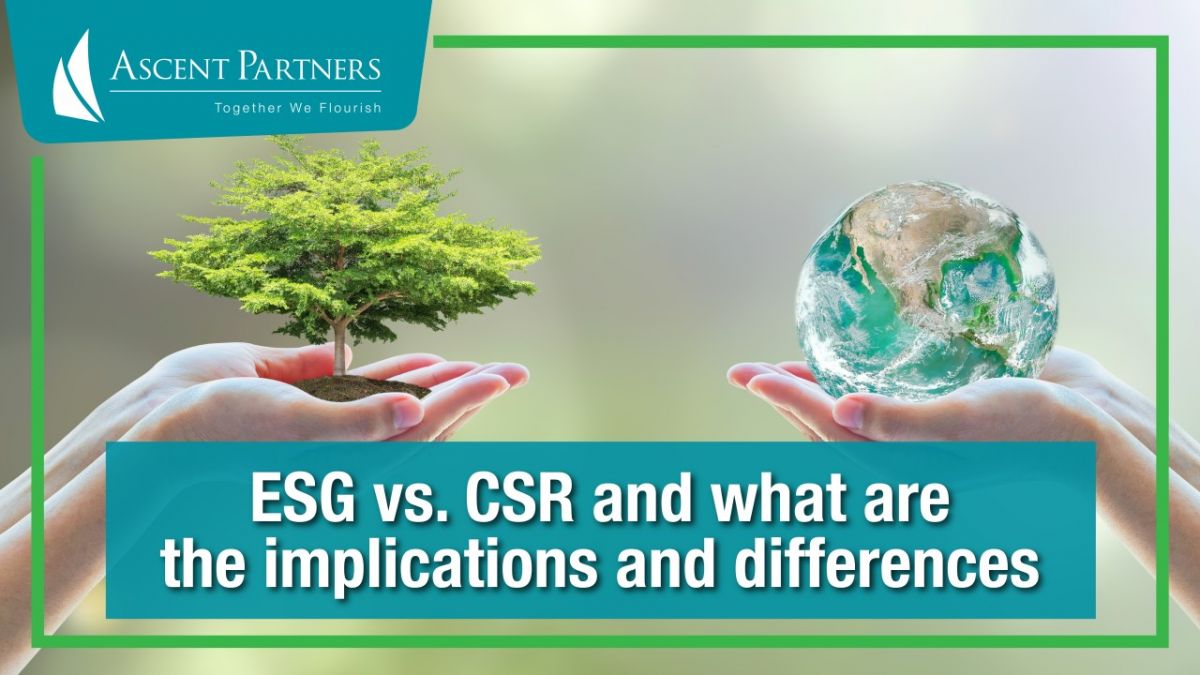
ESG Vs. CSR and what are the implications and differences
As more and more companies, investors, regulators and the general public become more and more aware of the positive, and, possibly more importantly the negative impact a company can have on the world, the shift from CSR to ESG has exploded in the last decade.
CSR, or Corporate Social Responsibility, was a major buzzword in the 1990’s. Traditionally, (CSR) has been about doing good for good’s sake. It has focused on social accountability and community engagement offering qualitative evidence of the positive impact a company can have on the world.
However, the last 15 years has seen a definitive shift towards Environmental, Social, and Governance (ESG) at the expense of CSR. ESG examines the hard numbers and material effects of a company’s activities on the ecosystem, people, and on the business itself.
Companies have often used the terms ESG, CSR, and sustainability interchangeably. ESG is now the norm and is used almost exclusively by those who evaluate a company’s efforts to improve its impact on society, the environment, and its employees (investors, the public, NGO’s and regulators).
The two main reasons for companies to adopt ESG practices today are transparency and accountability. Transparency demonstrates a company’s openness and honesty.
Even when a business is not meeting its ESG goals as its leaders had intended, transparency means it must still reveal that data to build trust.
Accountability follows transparency. This value ensures that companies take responsibility for what transparency has uncovered.
Therefore the ESG report has supplanted the older CSR reports/statements for companies. Research from Gartner points to the growing value of ESG to investors. Eighty-five percent of investors considered ESG when investing in 2020.
Bloomberg estimates that global ESG assets will exceed US$53 trillion by 2025. Hence the increasing statutory pressure that Regulators are putting on companies globally.
Here in Hong, the ESG Report must be submitted with the Annual return. The Hong Kong Exchange and Clearing Markets (HKEX) has recently tightened up the reporting standards from optional to mandatory for all components of the ESG report.
We, at Ascent Partners, cannot highlight how important a transparent and accurate ESG report is for your company. Not only will you fall foul of the regulators, but you will possibly be open to litigious actions from investors for misleading disclosures.
A bad CSR report did not bring financial consequences, except perhaps reputational damage. A Bad ESG report could possibly lead to severe financial implications, including fines and legal proceedings!
